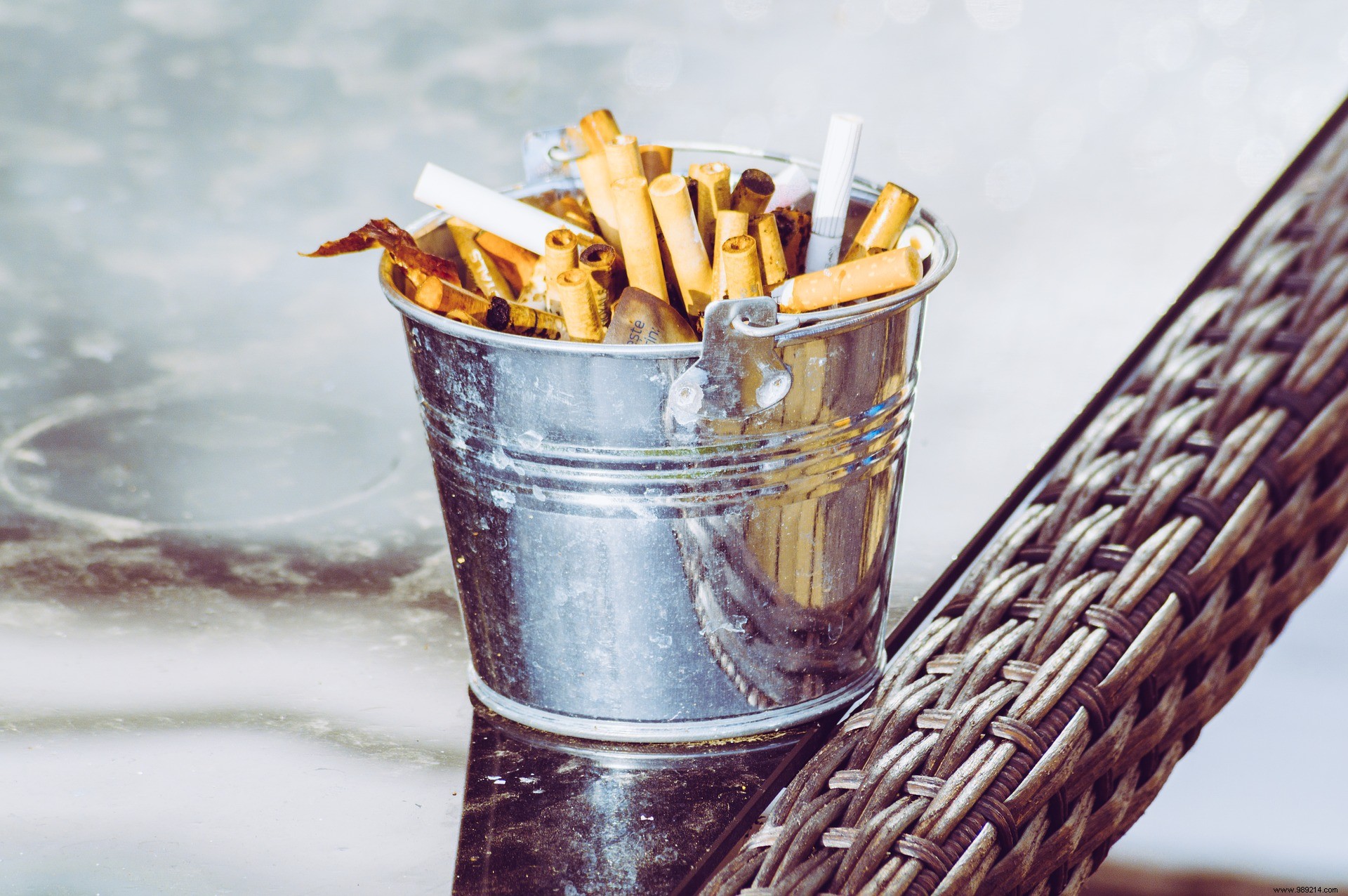A recent study suggests that even when turned off, cigarettes continue to emit harmful compounds into the air for several days.
Although the number of smokers is in decline, it is estimated that more than 11 billion cigarettes are still smoked and thrown into the public space every day on earth. That's over 127,000 cigarette butts per second . We know that these residues take their time to degrade (more than ten years). They are therefore very harmful to the environment. However, another question remains:are they also always harmful to health?
Dustin Poppendieck and his team at the National Institute of Standards and Technology (NIST) recently looked into the matter. For this study, the researchers placed 2,100 cigarettes recently extinguished in a stainless steel room. All had been smoked not by humans, but by a machine specially built for the occasion. The latter was capable of taking six big puffs per cigarette.
Once the room was closed, the researchers then measured eight chemicals . Commonly emitted by cigarettes, they are considered by the FDA (Food and Drug Administration) to be the most harmful to health. They played with room temperature, humidity, and saturation to gauge the response of these emissions to various environmental conditions.
At the end of the study, it finally emerged that most of the chemicals contained in the extinguished cigarette butts were still released during the first seven days . For example, cigarette butts produced in 24 hours 14% of the nicotine normally produced by a still active cigarette .
In other words, "for a week, the levels of nicotine released by an unlit cigarette butt were comparable to those released by the smoke of active smoking “, write the researchers.
Dustin Poppendieck, lead author of the study, said he was "very surprised by the results. "You might think that by never smoking in your car when your kids are around, you're protecting them . But if the ashtray in your car is full of cigarette butts that emit these chemicals, they are eventually exposed “.
Researchers also found that when the air temperature in the room was warmer, cigarette butts emitted their chemicals at higher rates. Otherwise, leaving a full ashtray in a car is not a good idea. However, leaving it in a car in direct sunlight in the summer is even worse.

In view of these results, the researchers insist on the need for smokers to bury cigarette butts in a pot of sand, for example, rather than leaving them outside in the open air.
This study is important insofar as most of the work carried out on the dangerousness of cigarettes focuses on active and passive smoking. But, obviously, the danger does not stop there.
The study nevertheless has a limit. Indeed, the researchers only used cigarettes from one leading brand. Comparative studies will therefore be necessary to refine the figures.
Source
Related articles: